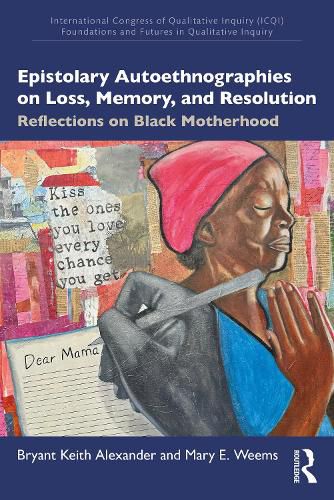Readings Newsletter
Become a Readings Member to make your shopping experience even easier.
Sign in or sign up for free!
You’re not far away from qualifying for FREE standard shipping within Australia
You’ve qualified for FREE standard shipping within Australia
The cart is loading…






This book uses letter writing as a form of engaging autoethnography to address relational histories and dynamics such as race, gender, loss, memory and resolution.
It is structured around textual performances, poems, and dialogues in the form of letters. Set within the context of adult Black children and their Black mothers, each author uses their letters to reflect on life with and without mama, and their own sense of coming to know themselves in the absence of their mother. Each entry evidence encounters of pain, possibility, and potentiality collated between the authors for a robust thematic underpinning for the reader. Building upon poetic inquiry and autoethnography narratives, this book seeks to build arguments about privatized struggle, and offers a guide on reflection.
In addition to students and researchers partaking in autoethnographical studies, this book is suitable for anyone studying qualitative inquiry, performance studies, gender studies, cultural studies, Black studies, anthropology, and performative writing.
$9.00 standard shipping within Australia
FREE standard shipping within Australia for orders over $100.00
Express & International shipping calculated at checkout
This book uses letter writing as a form of engaging autoethnography to address relational histories and dynamics such as race, gender, loss, memory and resolution.
It is structured around textual performances, poems, and dialogues in the form of letters. Set within the context of adult Black children and their Black mothers, each author uses their letters to reflect on life with and without mama, and their own sense of coming to know themselves in the absence of their mother. Each entry evidence encounters of pain, possibility, and potentiality collated between the authors for a robust thematic underpinning for the reader. Building upon poetic inquiry and autoethnography narratives, this book seeks to build arguments about privatized struggle, and offers a guide on reflection.
In addition to students and researchers partaking in autoethnographical studies, this book is suitable for anyone studying qualitative inquiry, performance studies, gender studies, cultural studies, Black studies, anthropology, and performative writing.